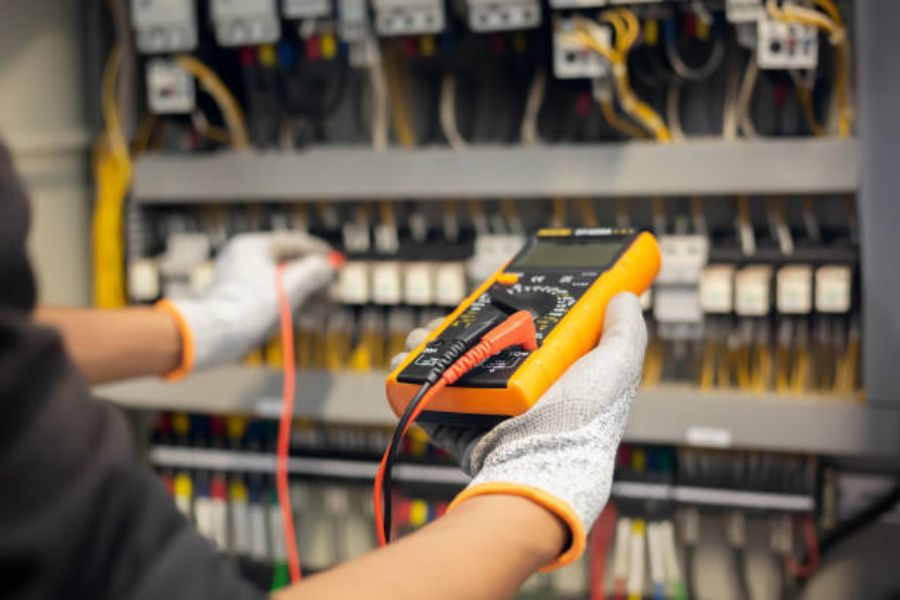Table of Contents

Understanding the Function and Importance of a 240 volt contactor
When it comes to electrical systems, the smooth and efficient functioning of various components is crucial. One such component is the 240 volt contactor. In this article, we will delve into the different aspects surrounding this essential device, including its purpose, operation, and why it is widely used in residential and commercial settings. So, let's explore the world of 240 volt contactors and discover how they play a vital role in electrical systems.
What Is a 240 Volt Contactor?
Before we dive into the details, it's essential to understand what a contactor is. A contactor is an electrical device used for switching an electrical circuit on or off. Specifically, a 240 volt contactor is designed to handle higher voltage levels, typically found in industrial or commercial applications. It acts as a high-power switch that allows or interrupts the flow of electricity in a circuit, making it a critical component for controlling electrical systems.
How Does a 240 Volt Contactor Work?
To comprehend the inner workings of a 240 volt contactor, we need to examine its construction and operation. At its core, a contactor consists of three main components: an electromagnet, contacts, and a spring mechanism. When a current passes through the coil of the electromagnet, it generates a magnetic field that attracts the contacts, closing the circuit. Conversely, when the coil is de-energized, the spring mechanism pulls the contacts apart, breaking the circuit. This mechanism ensures the smooth and reliable operation of the contactor, allowing it to handle high voltage loads with ease.
The Importance of 240 Volt Contactors
Now that we understand the basic functioning of a 240 volt contactor, let's explore why it holds such significance in electrical systems. Here are a few key reasons:
1. High Voltage Handling
240 volt contactors are specifically designed to handle high voltage levels, making them suitable for industrial and commercial applications. Their robust construction and ability to switch high loads make them indispensable in various electrical setups.
2. Enhanced Safety
By utilizing a contactor, electrical systems can be controlled and switched off remotely, ensuring the safety of both equipment and personnel. Contactors provide a reliable means of isolating circuits, preventing damage and accidents that could occur due to uncontrolled electrical flow.
3. Longevity and Durability
240 volt contactors are built to withstand heavy loads and frequent switching, making them highly durable. Their rugged construction ensures longevity, reducing the need for frequent replacements and minimizing downtime in electrical systems.
4. Precision Control
With the ability to handle high voltage levels, contactors provide precise control over electrical circuits. They allow for efficient management of power distribution, ensuring that electrical equipment operates optimally and according to specific requirements.
Common Applications of 240 Volt Contactors
The versatility and reliability of 240 volt contactors make them suitable for a wide range of applications. Here are a few common areas where you can find these essential devices:
1. HVAC Systems
In heating, ventilation, and air conditioning (HVAC) systems, 240 volt contactors are used to control the compressor and fan motors. They enable efficient operation and allow for the smooth functioning of these critical components.
2. Industrial Machinery
In industrial settings, contactors are used to control motors, pumps, and other heavy-duty machinery. The ability to handle high voltage levels and provide reliable switching makes 240 volt contactors vital for industrial automation and control systems.
3. Lighting Systems
Contactors also find application in lighting systems, especially in commercial and outdoor settings where multiple lights need to be controlled simultaneously. By using contactors, the switching and control of lighting circuits become more efficient and manageable.
4. Motor Control Panels
Motor control panels that govern the operation of various motors in industrial facilities rely on contactors for their switching needs. The ability to handle high voltage loads and provide reliable control makes 240 volt contactors a preferred choice for motor control applications.
Conclusion
240 volt contactors play a crucial role in the smooth functioning and control of electrical systems. Their ability to handle high voltage levels, provide precise switching, and enhance safety makes them indispensable in a wide range of applications. By understanding the basics of a 240 volt contactor, you can appreciate its importance and make informed decisions when it comes to electrical system design and maintenance.
